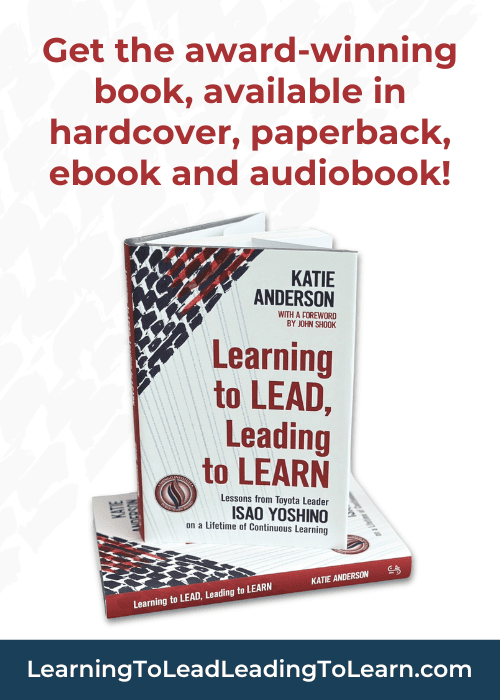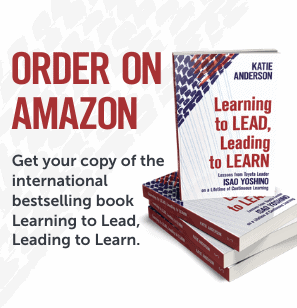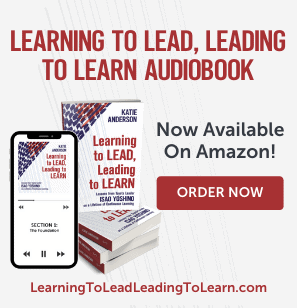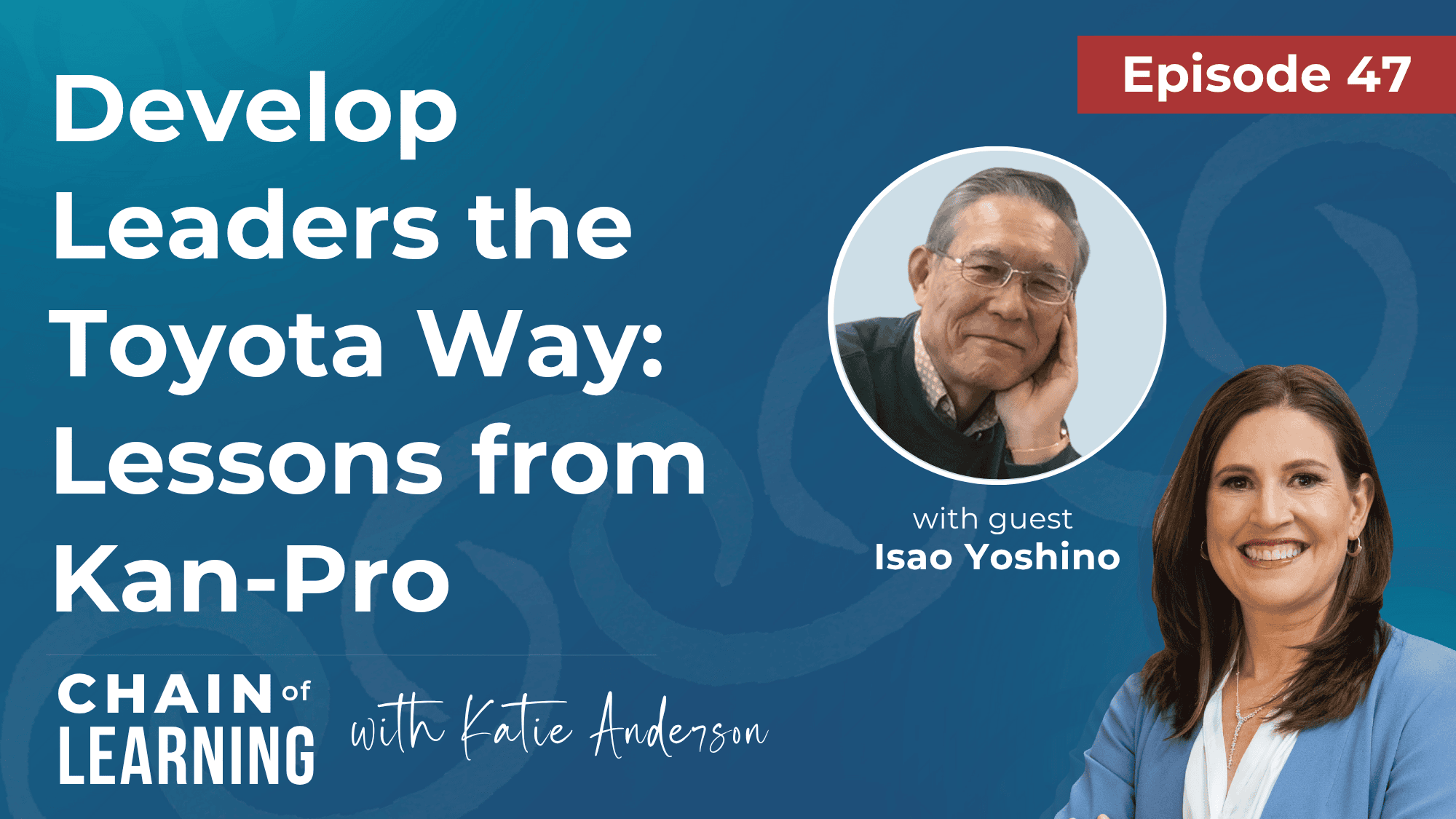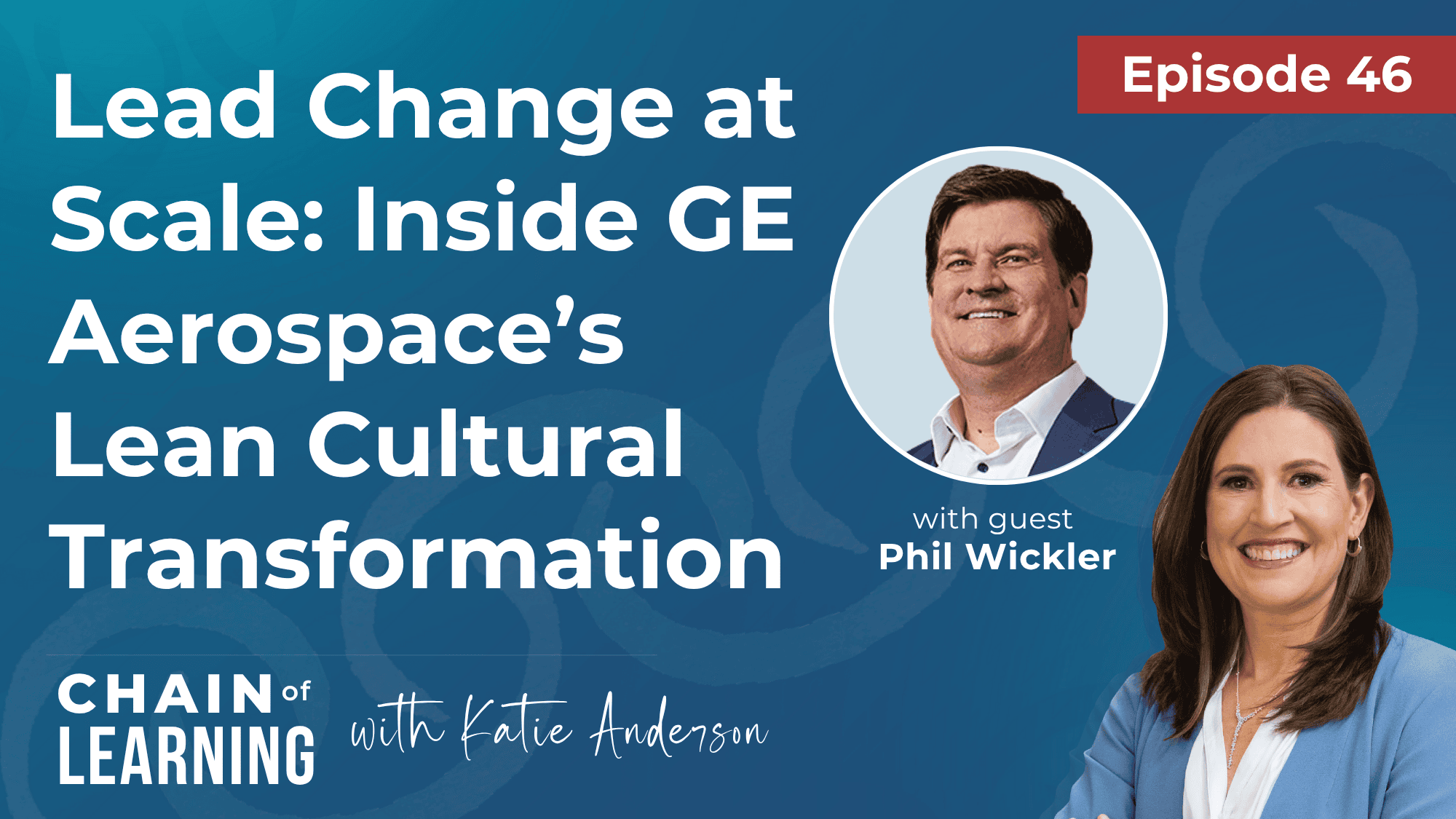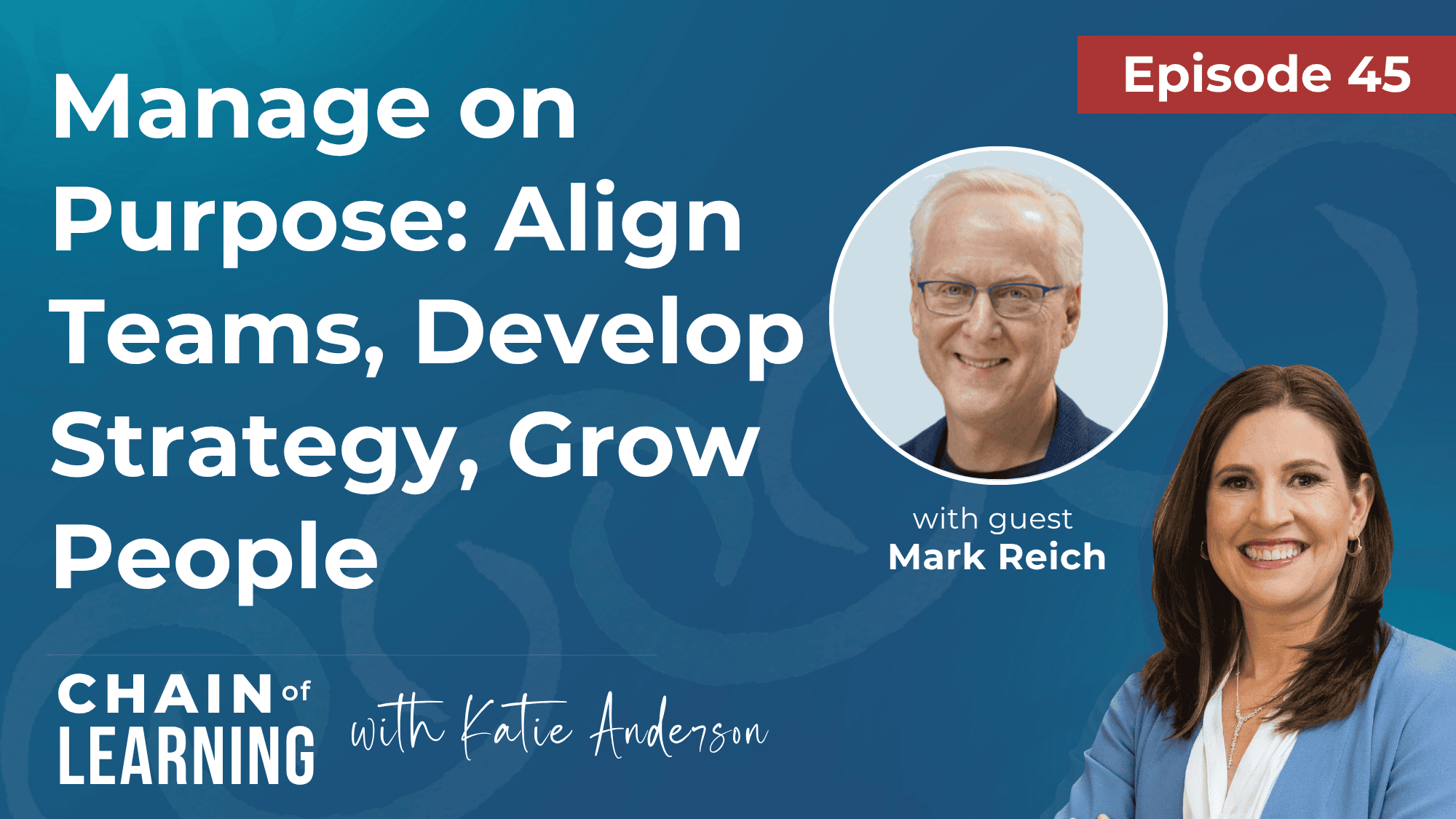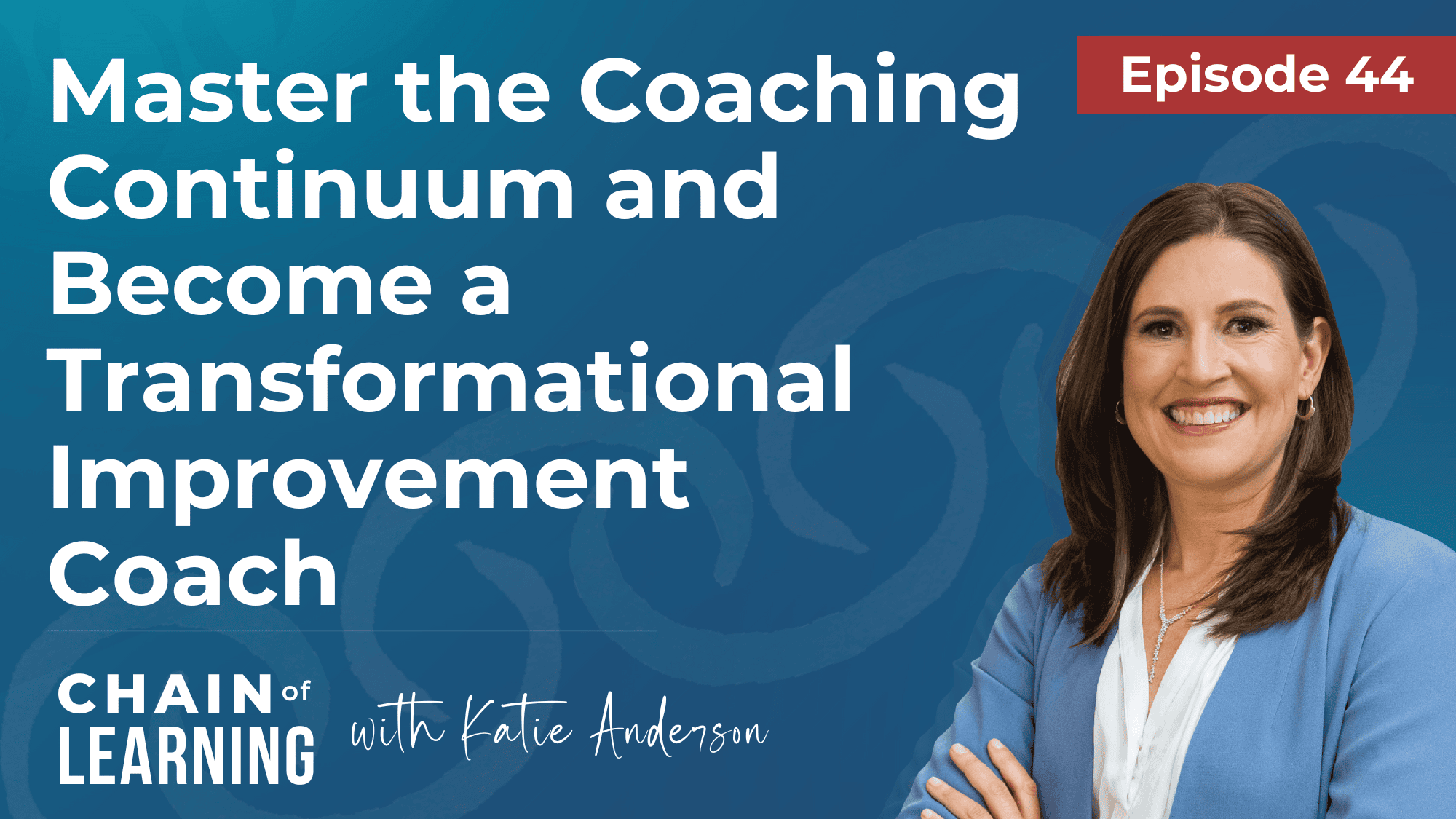How can growing businesses use lean principles to drive sustainable growth? How can entrepreneurs create businesses that deliver superior customer value and reach “unicorn” status by removing inhibitors to scale and speed? How does lean apply to start-ups and technology companies?
The new book What a Unicorn Knows: How Leading Entrepreneurs Use Lean Principles to Drive Sustainable Growth by Matthew E. May and Pablo Dominguez answers these questions, and more! In it, the authors synthesize key principles about lean, strategy development, and continuous improvement – and how to apply them to scale up businesses no matter what stage of growth they are in.
I was excited to celebrate the book’s release with an interview with Matt and Pablo recently, and dive into some of its core concepts, what inspired them to write it, and some of the key lessons they’ve learned through their collaboration.
What a Unicorn Knows Book Giveaway
In the spirit of collaboration and learning – and growing our Chain of Learning together with you, Matt and Pablo generously donated the most books ever for one of my book giveaways!
What a Unicorn Knows released into the world at the end of February 2023 – and in celebration – Matt and Pablo gave away TEN copies for ten lucky winners anywhere in the world!
If you would like to be notified about my next giveaway, please join my email list here.
This giveaway closed at 11:45pm Pacific time on March 15th, 2023.
About Matt May and Pablo Dominguez
Matthew E. May is an author, speaker, and consultant, and currently leads the Lean ScaleUp program at Insight Partners, a leading global venture capital and private equity firm investing in high-growth technology. His mastery of lean principles and methodologies comes from spending nearly a decade inside the Toyota organization, where he played an integral part in launching the University of Toyota, a corporate university dedicated to teaching, preserving and expanding the Toyota Way.
His experiences at Toyota led to his first book The Elegance Solution: Rules to Innovate By. Since then he has written five more books (now including What a Unicorn Knows) and has continued on the path of speaking and consulting.
Pablo Dominguez is an Operating Partner at Insight Partners where he leads the Sales & Customer Success Center of Excellence. Pablo has spent his entire career as a go-to-market and sales-focused operator and has extensive experience in sales, customer success, and global business operations. The application of lean principles has figured centrally in driving sustainable growth in each of these ventures. What a Unicorn Knows is Pablo’s first book.
Matt and Pablo have been working together for over a decade, experimenting with applying lean thinking to sales, operations, and startups.
The Connections in our Chain of Learning®
Although this interview was the first time I talked directly with Pablo, Matt and I have known each other for years.
Together, our Chain of Learning® is strong…and continues to grow!
I was first introduced to Matt’s work nearly a decade ago through our mutual friend and colleague, Jeff Hunter, who is the author of Patient-Centered Strategy, which incorporates many lessons from Matt. (You can read my author interview with Jeff about his book here). And it turns out that Matt and another former colleague – and previous guest on my author interview series – Ken Pilone worked together at Toyota University.
Recently, I named Matt’s book The Elegant Solution (though it was a hard choice, as I enjoyed them all) and as one of my top books recommendations on culture, organizational change, and strategy.
Matt’s integration of the Playing to Win strategy framework, highlighted in the book by the same name, by A.G. Lafley and Roger Martin (which also on my top books recommendations on culture, organizational change, and strategy), links strategy development with lean concepts about experimentation and iteration, was transformational to my approach to both strategy development and deployment.
Matt also generously endorsed my book Learning to Lead, Leading to Learn, with this quote:
“One of the most valuable takeaways from my experience inside the Toyota organization – which in many ways coincides with that of Isao Yoshino’s – is the simple but profound insight that learning and leadership go hand in hand, but learning comes first. … Learning to Lead, Leading to Learn may be the only book you’ll ever need to read if you want to truly understand what makes Toyota tick.”
Author Interview with Matt May, Pablo Dominguez, and Katie Anderson: What a Unicorn Knows
In our dynamic and fun discussion, Matt, Pablo and I explore many topics about lean, continuous improvement, growing sustainable businesses, and more. Plus Matt and Pablo share some key insights about how to “scale-up” a new business.
Without further ado, click below to watch the video and scroll down to read out some of the highlights from our conversation below.
And – for the first time ever – we are also publishing an audio-only version of the interview, which you can listen to here, open Spotify or Apple Podcast to listen on-the-go.

Below are some lightly edited excerpts from our conversation with timestamps from some of the questions I asked.
1 – What inspired the two of you to write a book together? And what problem were you trying to solve? (4:12)
Matt May (04:25):
I think the problem is, “how do you consistently grow and scale your company?” Because that’s really what business is all about. If you’re not growing, why are you in business?
But everyone’s sort of facing the same challenge right now. Whether it’s the craziness of a pandemic three years ago or the craziness of a 180 in the market, everyone’s looking for some sort of magic potion.
What we’ve seen is that if you think about certain principles in a lean way some of that magic actually appears. So this is meant to be a sort of a playbook for addressing those kinds of challenges.
Pablo Dominguez (06:03):
When we started at a public company and we did it [implemented lean practices and strategies] a couple of times and saw the results, it was amazing. Then when Matt and I worked together at a startup and saw the results, it was great.
Now that we have over 500 companies in our portfolio at Insight we thought, “Hey, why don’t we try and put this down on paper to really provide these frameworks out to the community?”
Most of lean is tied to manufacturing, the Lean startups are more about product development. I think we’ve done very cool things and we wanted to provide that to the community.
Most of lean is tied to manufacturing, the Lean startups are more about product development. I think we’ve done very cool things and we wanted to provide that to the community.
2 – Let’s unpack the book’s title. Most people are familiar with a unicorn as a mythical horned horse creature fabled to be real but never seen. What does this mean in a business context? (6:50)
Pablo Dominguez (07:14):
The dream of any founder is to ultimately build a very successful business. One of the aspirations is achieving “unicorn status,” which is getting an evaluation of a billion dollars.
In the last year we’ve seen the number of unicorns skyrocket to almost double what they have historically every year because of the situation in the market. But it’s this state of, can I achieve that billion dollar evaluation and build a sustainable business?
So the book is called what it is because we wanted to show what the best unicorns have done to maintain sustainable business and what we see in our portfolio and in the market externally.
So the book is called what it is because we wanted to show what the best unicorns have done to maintain sustainable business and what we see in our portfolio and in the market externally.
3 – What is a “scale-up” business? (9:00)
Matt May (09:07):
Think of the maturity of a company in three stages (and this is obviously vastly oversimplified): start-up, scale-up, and grown-up.
Scale-up is generally only something like a company that for the last three years has had growth of 20% or more.
So rapidly growing startups are oftentimes growing so fast that disciplines have not been developed. And sometimes just like any adolescent teenager they’re very impatient and don’t necessarily want to do all the right things, make all the right decisions, and lo and behold that’s when potential failure can happen… And that’s exactly what we try to avoid in our work.
4 – You talk about these four different forces that work against any object in motion, including a rapidly growing company: drag, inertia, friction, and waste. Can you briefly describe each of these? (11:23)
Matt May (11:50):
You know, oftentimes companies are trying to build a Formula One car when they really might just need a Toyota Corolla.
It got us thinking about that visual metaphor of a Formula One car. We thought about the motion of the car and likened the Formula One car to a scale up. They’re both very high technology entities, very high velocity entities, and they both face physical forces in trying to move through time and space.
They face drag, which is the resistance against air. And there is an organizational equivalent to the physical force of drag. Like when decisions take too long when choices just seem to drag out forever and no progress is made, that’s drag and that certainly gets in the way of scaling up.
There is friction. We’ve all experienced friction, whether it’s person to person, or with a customer and sometimes that friction gets in the way of any kind of progress.
There’s inertia. We’ve all heard of corporate inertia, you’ve got to get that car moving and it takes an enormous amount of energy, but once those flywheels are spinning, it takes less energy.
Pablo Dominguez (14:50):
Then as companies scale, you accumulate more waste. You’ve got technical debt, you’ve got go-to-market debt, etc. And sometimes it’s hard to look back and say, how can I remove that waste to be much more efficient?
To stay on the F1 sort of analogy – the fastest time recorded to change four tires and fill gas in a car is under two seconds. Which, if you think about it, you’re like, there’s no way that’s possible, but it is, right? So F1 has done a phenomenal job of really eliminating as much waste as possible to drive as much efficiency as possible, which is amazing.
5 – What is the Unicorn Model? (17:08)
Matt May (17:42):
Our Unicorn model is an acronym made up of five principles.
SCALE:
Strategic Speed
Constant Experimentation
Accelerated Value
Lean Process, and
Esprit Decor.
What makes those principles unique are two things: first, it’s not about any one of those – it’s about how you balance all five of those to move forward and scale up, and second, to do that in a way that’s lean.
6 – What’s the most common recommendation you have for how to move forward in overcoming these forces? (23:12)
Pablo Dominguez (23:28):
It’s interesting because… you should start with strategy, right? But it’s hard to convince leaders that their strategy isn’t sound.
You should start with strategy, but it’s hard to convince leaders that their strategy isn’t sound.
So in theory, I’d say you want to start with strategy because that will guide the entire company in terms of where you should be going, but typically we end up starting on the process piece and work on something that is broken in the system.
It has been very natural for us to start there and demonstrate waste we can take out. On average, we’ve been able to take out 25% of waste in the lead to cash process. That’s like decreasing time to value for your company by 25%.
So that’s always a great place to start because you bring people together from different functions that work together and you can see the ROI immediately.
7 – Matt – you worked with Toyota at the University of Toyota for many years. What is one important concept that you learned from your time that has influenced your thinking and your approach with helping your clients? (25:29)
Matt May (26:03):
My entire worldview shifted from one that is natural, intuitive and simpler, which asks: what do I need to do next? What am I supposed to be doing? What more can I be doing? – to one of subtraction.
So, I now look at the world from the point of: what needs to be removed to allow me to go forward. What should I stop doing? What should I do less of?
I now look at the world from the point of: what needs to be removed to allow me to go forward. What should I stop doing? What should I do less of?
Every single book I’ve written, every single workshop, everything that you read in What a Unicorn Knows is through that lens of subtraction. Which is not a glass half full versus half empty kind of duality. It’s really about, given this glass and this container, how do I optimize it?
The path seems to be, how do I get maximum effect through minimum means? So it’s a little bit of a shift between what a lot of people think of lean as, “Hey, how do I do more with less?” And oftentimes the less focus is some willy-nilly cut that can be painful and doesn’t really bring you more, doesn’t really bring you any better. But that was a big shift for me. It was a light switch that went off when I was at my wits’ end.
8 – Pablo – what is something you’ve had to unlearn or shift for your own leadership approach to be more effective as you’ve gone through your own learning journey? (27:58)
Pablo Dominguez (28:11):
Learning to challenge the status quo when you are the status quo.
Learning to challenge the status quo when you are the status quo.
It’s very easy to say, yeah, I inherited something, of course I’m going to challenge it and optimize through lean or whatever principles. But, I tell the team all the time, a year from now what we created is the status quo, right? We shouldn’t be waiting for someone else or a crisis to come through to say we should improve, right? This goes back to continuous improvement but not for the sake of continuous improvement.
9 – What is something you’ve learned with a new perspective through the process of writing this book together? (29:11)
Matt May (29:26):
I never thought that writing a book was a team sport but it may seem “anti-lean,” but to borrow from Jeff Bezos’ principle, there’s one that I think goes something like two is better than one, and he’s usually referring to two ideas are better than one idea. And I think two brains are better than one.
Pablo and I don’t think the same. We push each other, we bounce stuff off each other. I liken us to Bernie Topen and Elton John. One without the other isn’t quite the rockstar.
Pablo Dominguez (30:51):
I like what Matt said. Matt brings the experience of writing books which I do not. But what I also learned was the fact that we’d worked together over 11 years at different stages of companies, allowing us to gel.
I think having some similarities worked well, but to Matt’s point, we are drastically different in terms of how we think or operate, so I think we complement ourselves significantly. That was extremely helpful.
10 – What is a question that you haven’t, or are not usually asked about the book? What is that question? And what’s your answer? (31:46)
Matt May (32:06):
So, there’s always a tendency to reduce the book down to one thing. Like, what is the one thing to take away from this and share with my team?
I am always asked this and I just want to say that that kind of misses the point of this book.
If you take that point of view, you’re kind of missing the point that all of these things are just like the parts of a Formula One car, they all have to work together. If one part isn’t quite working the way it should, it brings all the others down.
Don’t think of it as one thing. Think of this as a holistic mind shift that you can take into your workplace.
Don’t think of it as one thing. Think of this as a holistic mind shift that you can take into your workplace.
Pablo Dominguez (33:31):
My question would be, “Is this book really for me because I am X? Or I work at Y company, this seems like it’s not for me?”
And I actually think this book can be applied not only to every business model, but to personal life because the principles can be applied to any situation, professional or personal.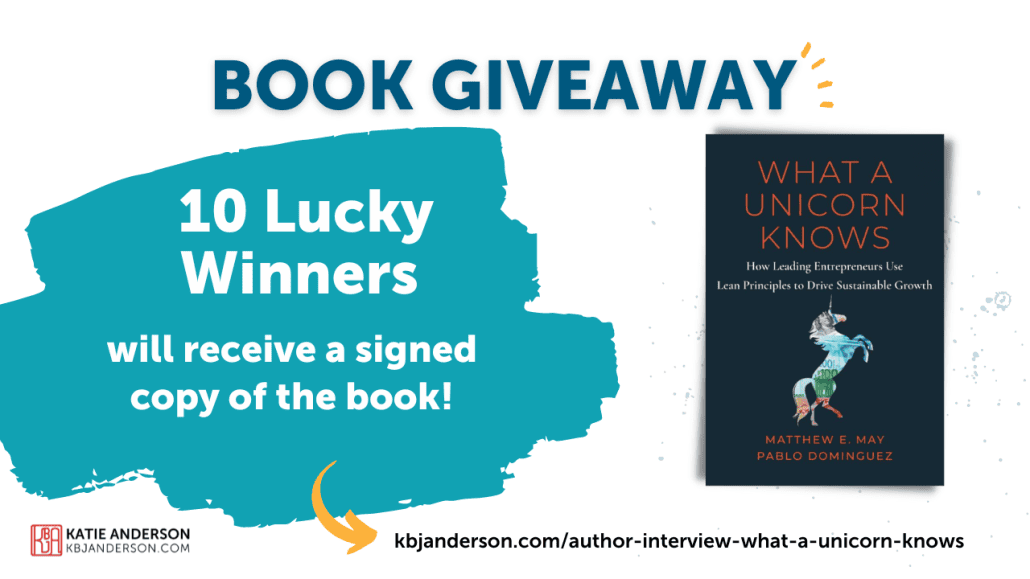
10 Chances to Win a Copy of What a Unicorn Knows!
Not one, not two… but TEN lucky participants received a signed copy of the paperback version of What a Unicorn Knows!
Click here for a chance to win my next giveaway.





